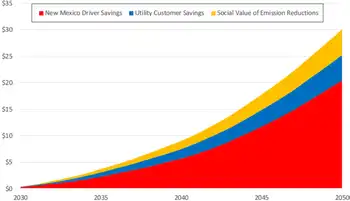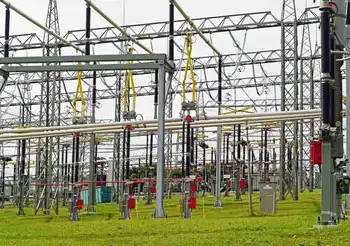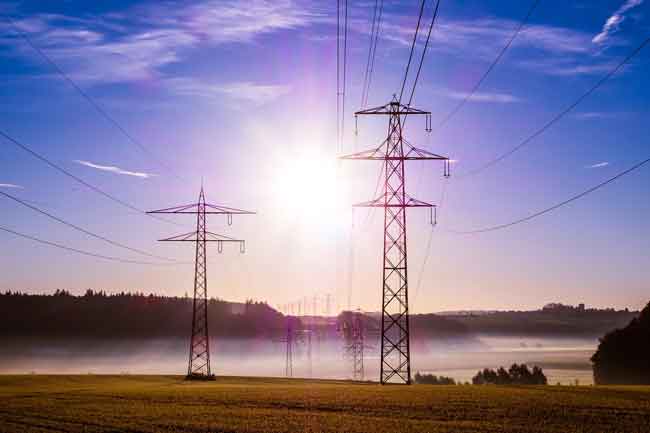Ottawa pokes holes in Ontario's arguments
OTTAWA, ONTARIO - The federal budget is expected to deliver significant new funding to Ontario on a number of fronts — housing, municipalities and even helping the province wind down coal-fired power plants.
So the new anti-Ottawa flare-up from Ontario Premier Dalton McGuinty, almost on the very eve of the budget, is baffling people behind the scenes in Prime Minister Paul Martin's government.
They wonder if McGuinty is launching this salvo as a communications exercise, either as a way to lay the groundwork to claim credit for whatever gains Ontario makes next week, or, more cynically, as a way of obscuring the fact that the Premier is going to have to break yet another election promise on balanced provincial budgets.
Whatever the case, federal Liberals are scrambling to mount a counter-defence. The so-called "talking points" have been issued, the Ontario MPs are lining up to condemn McGuinty for picking this fight, and the facts and figures are being assembled to rebut the charges that Canada's biggest province is also the biggest loser in the federal deal.
It's not easy. Untangling the web of fiscal connections between Ottawa and Ontario is no small task. McGuinty's case has been helped by reducing the argument to clean and perhaps over-simple equations: Ontario pays more into the federation than it takes out, he argues, therefore, all of Ottawa's extra money comes off the back of his province.
On the face of it, it's true, and probably will be true for a long time. Martin said as much the other day: Ontario is a wealthy province and the whole basis of Canada's wealth-sharing, or equalization system, is that richer provinces share their prosperity around.
"We have a responsibility to each other and this country is going to be stronger if every region and every province is stronger," Martin said. But Ottawa is also rejecting some founding premises of McGuinty's argument.
In the first place, officials at finance and the Prime Minister's Office say, McGuinty is treating the province and the provincial government as the same thing.
It's Ontario citizens, filing their federal income taxes, who are sending money to Ottawa, the officials point out. It's not the provincial government.
So if Ottawa manages to run a surplus and Ontario is running a deficit, that says more about the ways they've managed their budgets, federal officials argue.
Former prime minister Jean Chrétien put this argument forward seven years ago, when Ontario was led by an adversarial Conservative premier and the Liberal prime minister could afford to be a little less diplomatic with his provincial critic.
"Mike Harris has difficulties, that's true. Why? Because he had the notion that he should cut taxes first," the prime minister said in 1998, when Ottawa was starting to move its budget balance into the black.
"He cut taxes by $4 billion and now he can't balance the books," Chrétien said. "The smart thing, for a good administrator, is to get to zero before making tax cuts. That's what we did."
McGuinty's complaints have become more pointed in the wake of the deal Ottawa signed this week with Newfoundland and Nova Scotia that allows them to keep a larger share of their offshore oil revenues without having that windfall subtracted from their equalization payments.
McGuinty says more equalization money equals less money for Ontario, Alberta and Saskatchewan, the net contributors this year to equalization.
Again, say officials in Ottawa, that's mixing up the provinces and the provincial governments. Yes, the citizens of Ontario pour more into the federal system than they take out, but provincial governments aren't paying into the equalization system.
Moreover, the payments that compensate Nova Scotia and Newfoundland aren't equalization payments — they come from the federal natural resources department. They're called "offset" payments and they're drawn from Ottawa's general revenues, to which all citizens are contributors.
So what are the good citizens of Ontario getting from their big contribution to the federation? Lots, Ottawa argues. Apart from all the initiatives that are heavily weighted to helping Ontario interests — everything from harbour cleanups to money for the automotive industry — the federal government says it's been giving less-publicized breaks to Ontario for years. Among them:
In recognition of the hit that Ontario and rich provinces took when transfers were capped in 1990, Ottawa has been giving Ontario more than its share of increases when the transfer taps were turned back on in the late 1990s. While other provinces have seen 40 per cent increases, officials say, Ontario has seen its transfers increase by 50 per cent.
Ontario also got a break in the wake of a miscalculation in the equalization formula through the late 1990s, a mistake discovered by Ottawa in 2002. After discovering that Ontario had been overpaid to the tune of a whopping $2.1 billion from 1997 to 1999, the federal government first of all reduced the amount owed to $1.3 billion, and then extended the repayment period.
On a couple of McGuinty's points, Ottawa has no argument. He says the province's education system is among Canada's most under-financed.Federal officials can only nod and argue that education is a provincial responsibility.
McGuinty also says Quebec has a better deal from Ottawa on the money it receives to settle new immigrants.
That's true, too, federal officials say, and a result of the fact that one province managed to make a better deal than Ontario has so far.
And that may well be fodder for future talks between McGuinty and federal Immigration Minister Joe Volpe, who also happens to be Martin's chief political minister for Ontario.
Related News

British Columbians can access more in EV charger rebates
VANCOUVER - The Province and Natural Resources Canada (NRCan) are making it more affordable for people to install electric vehicle (EV) charging stations in their homes, businesses and communities.
B.C. residents, businesses and municipalities can receive higher rebates for EV charging stations through the CleanBC Go Electric EV Charger Rebate and Fleets programs. For a limited time, funding will cover as much as 75% of eligible purchase and installation costs for EV charging stations, which is an increase from the previous 50% coverage.
“With electric vehicles representing 13% of all new light-duty vehicles sold in B.C. last year, our province has the…




